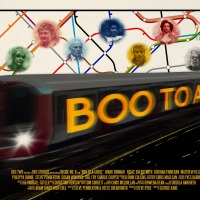A lcon Sleeping Giant Records, out now
lcon Sleeping Giant Records, out now
Hans Zimmer and Benjamin Wallfisch stand on the shoulders of synth giant Vangelis with their score to the Blade Runner sequel, creating something both familiar and new at the same time.
When director Denis Villeneuve’s regular composer Jóhann Jóhannsson was confirmed as composer for Blade Runner last autumn it was seen as both an exciting and brave choice. As he himself told me last November he’s a huge fan of the original and had some big plans for it. And then this summer Hans Zimmer and Benjamin Wallfisch were announced as contributors to the score, followed inevitably by Jóhannsson leaving the score entirely. Villeneuve puts it down to a need to take the score closer to the original Blade Runner sound, and we can only speculate that Jóhannsson thought otherwise.
Zimmer and Wallfisch are hardly the B-team, having collaborated on many projects, notably this year’s Dunkirk. Kicking off with 2049, this opening track asserts that we’re swimming in the same aural landscape as Vangelis, though there’s less of the twinkle and sparkle. Thirty years on and Earth is an even more wretched place, and any sense of wonder has been drained out of the synth chords that underscore the misery.
Zimmer is of course equally at home on synths as with full orchestra, and what we get is something that’s ‘almost Vangelis’ but with enough trademark flourishes to locate it in the Zimmerverse. This is not a leisurely listen – just play epic 10-minute end credits track Blade Runner for some industrial, thrashing caterwauling, segueing into the hypnotic main anthem. Wisely, the propulsive end titles and love theme from the original are not used – I think they would have been too much of a nod – but one piece (I won’t name it, as you might contextualise a spoiler) makes a poignant reprise.
Like the film itself, while a direct sequel to the original, hat tips to the past happen for a reason, rather than just to trip the nostalgia switches. Ironically, the score works best when it’s least like Vangelis, Sea Wall being another 10-minute cue that pounds away like the waves on the city defences. Joi, All the Best Memories are Hers and the beginning of Mesa present the music at its most human, providing lighter moments and a suggestion of hope in this harsh future. Soothing and haunting, the synths wash over you in these all-too-brief times of respite. Wallace is a terrifying overture for Jared Leto’s despot, low register guttural chanting (very Philip Glass’ Koyaanisqatsi) overlays a constant drone.
The obligatory pop song by Lauren Daigle – Almost Human – feels superfluous, and while they feature in the movie I’m not sure that the addition of Elvis Presley’s Suspicious Minds and I Can’t Help Falling in Love, or Frank Sinatra’s Summer Wind and One for my Baby actually add any great value to this album.
Verdict: Phonically and sonically set in the same universe as Vangelis’ original, it’s a shame that we never got to hear what Jóhannsson had planned, but Zimmer and Wallfisch create an appropriate sound for this sequel. A synthetic sound for a film about synthetic people – how very appropriate. 8/10
Nick Joy
Click here for our spoiler-free review of the movie











